How to Dry Cannabis Buds
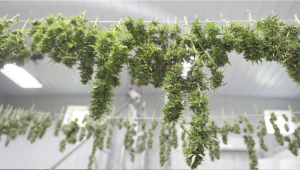
- 1. Slow and steady
- 2. Hang your buds to dry
- 3. Jars jars jars
- 3. a. If humidity is above 70%:
- 3. b. If humidity is 65%-70%:
- 3. c. If humidity is 60%-65% aka the sweet spot:
- 3. d. If humidity is below 55%:
- 4. Curing
- 5. How long?
- 5. a. Slow vs fast drying
- 6. In conclusion: what next?
It's time to harvest your buds, and all you can think about is the first smooth, flavorful hit, but not so fast, you have to dry and cure them first. Without a proper cure, you'll only get foul, harsh smoke. It might seem like all the work is done when harvest time swings around. But not so fast! Just because you’ve removed the buds from your plants doesn’t mean that the hard work is over. In fact, the most important part of growing cannabis seeds is yet to come. Correctly drying and curing your harvest will prevent all of your hard work from going to waste. You see, those cannabis buds you see before you are made up primarily of water. This means that mould will jump at the first opportunity to start feasting upon them!
To prevent this from happening, you’ll need to dry them. But you need to do so correctly. Drying your buds out too fast results in harsh tastes and a loss of terpenes. Likewise, drying too slowly will give mould the opportunity to colonise your flowers. While drying is important, it isn’t the only vital process that occurs post-harvest. To get the best results possible, you’ll also need to cure your flowers. This results in the tastiest and smoothest buds possible. So what's the best way to dry your buds? Read on to find out.
1. Slow and Steady
There are a few hacks one can use to dry the buds as quickly as possible, but they all sacrifice flavor and potency for speed. You invested a lot of time and money in your seeds and plants, why sabotage the final product at the last second? The best-tasting marijuana slowly dries over the course of a few months. To do this right, you'll want to invest in a hygrometer. You should already have one of these lying around, but if you didn't use one in your grow tent for some reason, you can pick up a cheap hygrometer on Amazon for less than 25 Euro or 30 USD. This device will read the relative humidity in the air, which you'll need to know to ensure a proper cure.
2. Hang your buds to dry
Step one is pretty simple, after trimming away the leaves (don't forget to save them for extracts or edibles) you'll want to hang your buds upside down, just like you were drying a flower for pressing. The ideal drying room should be kept at 21°C (70°F) with a 50% humidity reading on your hygrometer. There might not be a room in your home that meets these conditions, but you can use AC, heating, humidifiers, and dehumidifier to reach ideal conditions. Some environmental modification is better than nothing, so it's OK if you can't recreate perfect conditions.

If you live in a very humid area where the buds won't dry quickly, consider buying a drying rack. It will help desiccate those buds before mold can start growing. You want this process to take around four to seven days. Any quicker and you'll lose flavor and potency, any slower and you risk mold on your precious flowers. You'll know you're ready to move on when the stems of your buds cleanly snap off, instead of bending or hanging by fibers.
3. Jars Jars Jars
We're done with the drying, now let's cure things right to maximize that flavor. For this next step, you'll need sealable glass jars like mason jars. Take your dried buds and place them inside and seal them tight. Ideally, you'd place a hygrometer in each jar, but depending on the size of your harvest that may be too expensive.
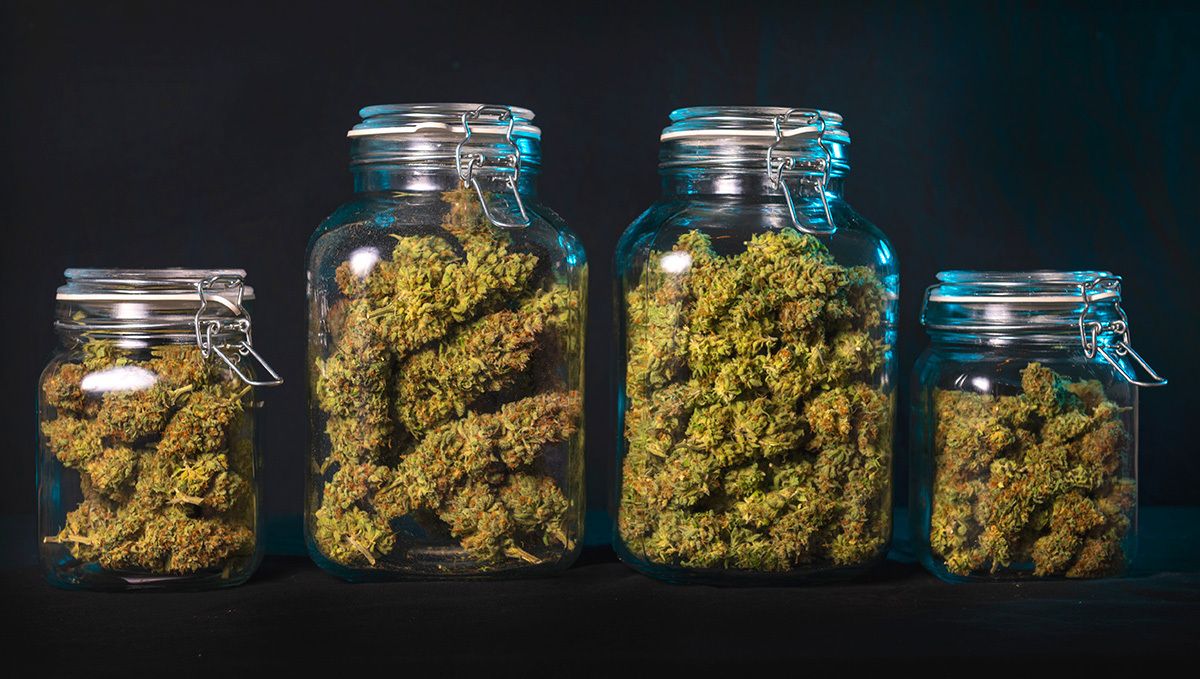
At least put one hygrometer in one jar and use its reading as a proxy for the others. So if it says 60% humidity in one jar, assume the other jars are around the same. We're hoping to keep the jars' humidity between 60%-65%. After sealing the jars, wait 24 hours and check on them. What you do next depends on the humidity reading.
If humidity is above 70%:
Take your bud out and let it dry in the open air for 12 hours. Return your bud to the jar and check again the next day.
If humidity is 65%-70%:
Open the top, but leave the weed inside. Let the open container sit in a well-ventilated area for four hours, then reseal and check again in 24 hours.
If humidity is 60%-65% AKA the sweet spot:
Perfect! No need to worry about the humidity today. Move onto the curing step.
If humidity is below 55%:
Uh-oh, humidity this low will make your buds dry too fast. Leave the jar sealed so more waters seeps into the air.
4. Curing
Once you get your jars into the sweet spot, you'll want to open them for about 15 minutes each day. This lets the collected water vapor escape and makes room for more water to enter the air from the plant. This process is called burping, and you should do it at least once every 24 hours for the first week of the cure. Once your jars' humidity has stabilized, you'll only do it once every two or three days, then once a week or less. Curing might seem like a waste of time at first, especially if you’re very keen to try your harvest. However, we can assure you that it’s worth every second.
Curing makes the difference between a good bud and a great one. It’ll transform the taste of your buds and allow the innate terpene profile to really shine through. This process facilitates the breakdown of chlorophyll and other molecules that can interfere with the taste and smoothness of cannabis flowers. Much like aging cheese or fine wine, curing prolongs the total harvesting process but results in a much superior product at the end of it all. Once you taste cured flowers, you’ll no longer have any problem with waiting longer to try your buds.
5. How Long?
A proper cure for buds can take longer than the grow that produced them. As long as a jar's humidity remains stable and between 60% and 65%, its flavor will improve for up to six months. To be honest, we're not always patient enough to wait six months to taste our buds, but we do save a special reserve from each crop to receive the full treatment.
Slow vs Fast Drying
Ideally, the drying process should take anywhere from 7 to 16 days as the biggest danger to cannabinoids and terpenes are the temperature and humidity levels during the drying process. Failing to provide the right conditions will cause the evaporation of said chemical compounds. So when drying your weed, make sure the humidity ranges between 50-60% and the temperatures between 18-22 ºC. Another important thing to keep in mind is airflow as stale air can cause mold, so make sure to provide enough airflow but do not place a fan directly onto the buds, it’s recommended to have the fans pointed at a wall in order to prevent the evaporation of terpenes.

Once you have everything set, hang your plants upside down and make sure they take a minimum of 7 days to dry. Remember that slow drying will help preserve the smell, flavor, and cannabinoids in your flowers. So basically, slow drying will result in better flavor, aroma, and high while fast-drying will give your buds hay or plant-like flavor and harm potency.
6. In Conclusion: What Next?
That's it. After months of growing, bud drying and curing, it's time to enjoy the fruits of your labor. If you have more than you can smoke, be sure to protect your dry buds with proper storage. If you have any more questions, reach out to us on Instagram or Facebook. We respond to all messages, and love seeing the fantastic plants our seeds produce!
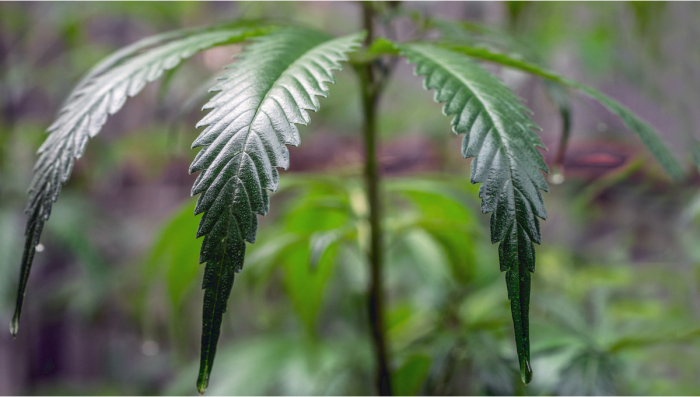







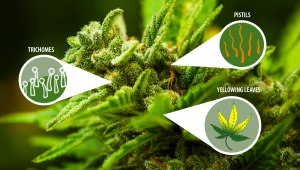
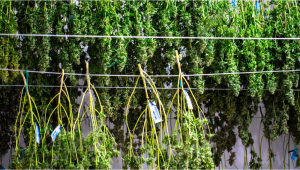

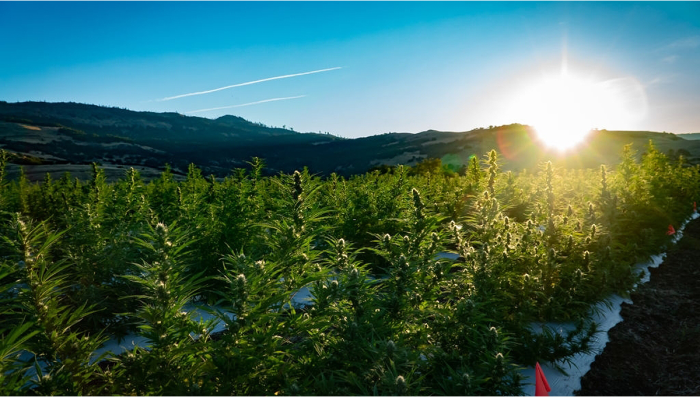
Comments